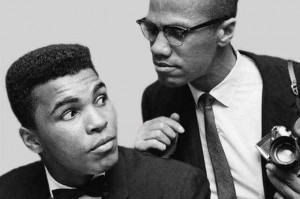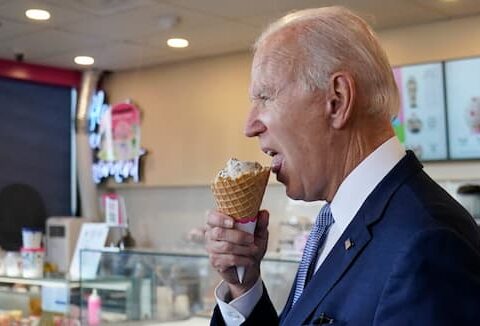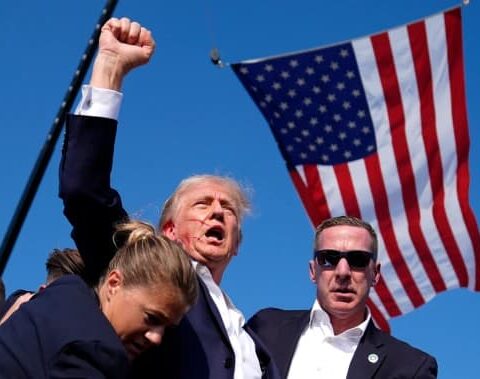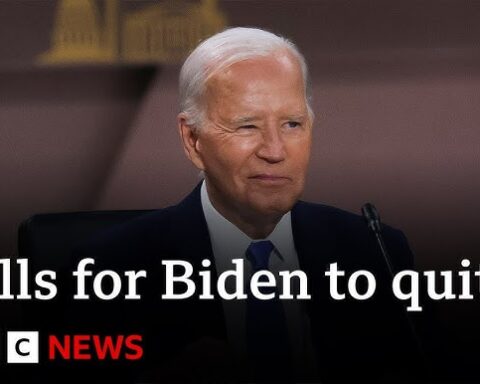Much has been made in the days since the death of Muhammad Ali about the ‘whitewashing’ of his life and legacy.
There’s no real question that Ali was, at least at one time, a radical; and that aspect of his story has been largely glossed over in much of the coverage. This has been motivated no doubt by a mixture of wanting to avoid divisiveness in the reaction to his passing, but also to some extent seeking to gloss over the uncomfortable realities of American history.
In some ways, the effect has been to maintain the image of Ali as a unifying figure who transcends race, culture and time, and – as the poet Maya Angelou once put it – ‘belongs to everyone’. I generally don’t see that as a bad thing, as it could be said that the Ali of the last few decades *was* that figure and wasn’t the radical of the 1960s.
On the other hand, one could argue, Ali was still someone who, in the 1970s, was saying things like “No intelligent person wants to mix races.” But he was of course the product of his society and times. There is no question that, over time, he evolved beyond some of his earlier outlook; and you’d struggle to make a case for Ali being a ‘racist’ in the straightforward sense, even though I’ve read lots of (probably deliberately skewed and confrontational) people in comments-sections trying to say he was. Beyond the mid-to-late sixties, he clearly wasn’t – even though he still said some things that might’ve created a false impression.
Thomas Hauser, who has written numerous books on Ali, notes on the Gilder Lehrman Institute of American History, ‘As the 1960s grew more tumultuous, Ali became a lightning rod for dissent in America. His message of black pride and resistance to white domination was on the cutting edge of the era. Not everything he preached was wise, and Ali himself later rejected some of the beliefs that he adhered to then. One might find an allegory for his life in a remark he once made to fellow 1960 Olympian Ralph Boston. “I played golf,” Ali said. “And I hit the thing long, but I never knew where it was going.”
But although some of the ideas Ali subscribed to at the time – for example, that instead of equal rights, African-Americans should’ve been given their own separate state (which was a view he had been imparted by the Nation of Islam) – sound to our modern ears like radicalism, we of course have to view everything he did and said in the context of the time.
So people going into comments sections of Ali tributes and complaining that he is a ‘racist’ and an ‘extremist’ are simply too stupid to grasp that context.
Ali’s attitudes were at a time when segregation was still very much in effect in various parts of America. The idea therefore of a separate state for Afro-Americans wasn’t, at that time, particularly extreme or nonsensical, but actually bore some logic.
Ali of course evolved beyond those views as he got older and the situation in the United States evolved, as well as his own experiences.

I made the same point in regard how a lot of people wrongly see Malcolm X today, writing, ‘to vilify Malcolm X based even on some of those pre-1964 statements is to miss the point that he was part of an oppressed, humiliated and generally maltreated minority in American society and that he was someone striving to both speak for that minority and to envision some possible path to dignity and rights in an age when it wasn’t being afforded… Entirely the product of his life experiences and inevitably hardened by them, what else *but* militant could anyone in his position be if they were going to look at and speak about the situation honestly?‘
Here with Ali, after all, was a man who, after winning gold at the 1960 Olympics, came back home to the US, went to a burger joint and was refused service purely because of his skin color.
For anyone to not understand why someone like Ali would naturally develop a militant attitude is sheer small-mindedness. But Ali, like Malcolm X, soon evolved beyond that position and developed a more worldly disposition, perhaps parallel to him becoming more and more a global figure.
In the end Ali, like Malcolm, was probably too intelligent and too perceptive to remain confined to too narrow a world-view. The Nation of Islam was a natural refuge at the time for an oppressed, angry (and still very young) Afro-American with a natural sense of pride and a particularly aggressive (and justified) anti-establishment disposition.
But Ali wouldn’t remain a young man forever, and eventually, as conditions changed, so did his disposition.
It didn’t *entirely* change; and even as time went on, Ali always appeared to retain elements of his more aggressive past outlook. This was evident in, for example, one of the most compelling bits of television in history, when Ali was being interviewed by the classic British TV host Michael Parkinson. Parkinson, who was actually on very good terms with Ali and had met him a number of times, seemed to go too far with his guest on this occasion when he pointed out the contradiction between some of Ali’s particularly resentful views on white America and the fact that Ali had a lot of “white friends”. Ali, uncharacteristically, appeared to get angry and launch into a on-air rant against Parkinson.
It’s difficult to tell who was ‘right’ in this scenario – and the truest answer is that they probably both were, from different points of view.
Nevertheless, it is fair to say that Ali’s attitude did soften over time, even though his highly intelligent and compelling views on race relations and society remained at times contentious.
Unfortunately, in regard to his much written-about relationship with Malcolm X, it didn’t change quickly enough.
The Malcolm X reference is of course particularly pertinent in the story of Muhammad Ali.
Ali’s relationship with Malcolm X has become one of the most referenced, and probably one of the saddest, aspects of both men’s stories.
Ali met Malcolm X in 1962 when he was still called Cassius Clay. Malcolm was regarded as Ali’s mentor for a time and by all accounts they had a very meaningful relationship; but their bond was broken when Malcolm separated himself from the Nation of Islam and instead adopted a more traditional, worldly version of mainstream Sunni Islam.
This had been inspired by his spiritual journey in 1964 as he travelled the Middle East and Western Africa, visiting Lebanon, Egypt, Saudi Arabia, Ghana, Morocco and several other countries. He credited his experience in Mecca in particular as life-changing, completely altering his views on race and religion. He no longer believed in Black Separatism – that central tenet of the Nation of Islam – and no longer believed that the ‘white man’ was himself the enemy or inherently an oppressor; but rather that it was the nature of American society that was the problem.
This older article in The Telegraph touches upon this theme somewhat, focusing on his famous life-changing experience; ‘He went on a pilgrimage to Mecca and was struck by the racial harmony among Muslims at that time: “There were tens of thousands of pilgrims, from all over the world. They were of all colors, from blue-eyed blondes to black-skinned Africans. But we were all participating in the same ritual, displaying a spirit of unity and brotherhood that my experiences in America had led me to believe never could exist between the white and non-white.”
It could be argued that it was Malcolm X’s discovery of what he viewed as ‘real’ Islam that sowed the seeds for his assassination. After his travels, the questionable version of Islam being preached in the NOI naturally didn’t chime with him anymore. The more militant activist – preciously labelled a ‘Black Supremacist’ by his legions of critics in white, conservative America – was now seeing the world through different eyes, his dispositions no longer compatible with the militancy and separatism of the Nation of Islam.

This inevitably created a rift between Malcolm X and the NOI leader Elijah Muhammad; but there were other, more personal reasons for this enmity too. For one thing, Elijah Muhammad obviously resented Malcolm’s iconic status and growing international stature.
Moreover, Malcolm was no longer able to uphold Elijah Muhammad once he’d found out about the NOI leader’s rampant womanising with teenage girls, including young secretaries that he’d gotten pregnant. He naturally saw Elijah Muhammad (who some have subsequently accused of having been under the control of the CIA) as a charlatan and hypocrite. But the cult-like support around Elijah Muhammad saw leading members of the NOI, including Louis Farakhan, denounce Malcolm X and accuse him of spreading lies.
After being suspended by the Nation of Islam, Malcolm X left the organization and immediately sought to establish his own Muslim Mosque, Inc. as a base for Afro-American Muslims outside of the NOI. An irreversible line in the sand was drawn between Malcolm X and the organisation he no longer belonged to.
But where, from all evidence, Malcolm probably didn’t shed many tears over separating from Elijah Muhammad and the NOI, the effect it had on his relationship with Muhammad Ali was probably another thing entirely. As this piece on the Malcolm/Ali fall-out puts it, ‘the relationship between two of the 20th century’s most iconic names and personalities remains nothing short of magnetic and profound. Their falling out was an emotional one. X’s voyage to Mecca was an eye-opening experience that – through so many degrees of separation – can be tied to his own demise in February 1965. His denouncing of Elijah Muhammad left Ali in an awkward place.’
Muhammad Ali’s denunciation of his former friend occurred at a highly toxic, divisive time in America and in African-American politics.
He was almost certainly too heavily under the influence and control of Elijah Muhammad and the NOI, seeming at times like a cult member or soldier unwaveringly loyal to his leader. Which isn’t to cast Ali as a weak-minded figure; but more someone caught between a rock and a hard place.
There’s no question that Elijah and the NOI saw Ali as their property, as their superstar member – whose fame and stature served to elevate the Nation of Islam’s standing and would help to draw more young Afro-Americans towards the movement. Keeping the heavyweight champion of the world on board was a major image boost; and having him unreservedly side with Elijah Muhammad openly denounce Malcolm X was a massive propaganda victory.
Although, out of loyalty to Elijah Muhammad and the NOI, Ali disavowed his former friend, Ali later said that turning his back on Malcolm was one of the mistakes he regretted most in his life.
Given that Ali himself would later move away from the anti-white aggression of the Nation of Islam and adopt a more mainstream, moderate Sunni Islam (and even later, a more mystical Sufi outlook), we have to wonder if he then regretted his estrangement from Malcolm all the more – as, essentially, he went in the same direction as his ex-friend, only much later. The book Blood Brothers: The Fatal Friendship Between Muhammad Ali and Malcolm X (by Randy Roberts and Johnny Smith) explores this subject at much greater length.

It is difficult not to instinctively side with Malcolm in this story. Malcolm had been the one to convince Ali to pursue a bigger role in the social and political landscape and to go onto the world stage and develop relationships with Africa – perhaps setting Ali on the path to becoming that more global figure that Maya Angelou would later celebrate him as. Malcolm had been the one to organise Ali’s visits to the Middle East and African nations.
And yet now Elijah Muhammad and the elitist African-American NOI Muslims had literally stolen Ali from him: and here was Ali firmly choosing them over him. It must’ve hurt a great deal.
Arguably, the path Ali was to follow, travelling around the world, Africa and the Middle East, and becoming a global figure, was – in the first instance – inspired by Malcolm X’s influence and actually at odds with the Nation of Islam’s more insular outlook.
One of the saddest anecdotes about these two men concerns an incident when Ali was touring parts of Africa. He and Malcolm happened to cross paths in Ghana. When the civil rights activist tried to greet the world champion, Ali is said to have turned away, refusing to greet him as a friend. They would never reconcile.
Malcolm X’s violent assassination in 1965 was – and has remained – firmly attributed to the Nation of Islam.
This is pretty easy, as in addition to the gunmen all being identified as NOI members, members of the Nation of Islam – including Louis Farakhan – have all but openly admitted they were behind his death. And Malcolm X himself openly said they were going to kill him. Even so, there remain questions even now about Malcolm X’s murder, enough so to make a case for the assassination having been an FBI ‘COINTELPRO’ operation in conjunction with elements of the Nation of Islam.
Roland Sheppard, an eyewitness to the murder, certainly has his own suspicons that the official story might be as spurious as those of the JFK and RFK assassinations.
This site meanwhile provides a good resource on the assassination, having compiled an extensive collection of documents chronicling Malcolm X’s death.
________________
As for Ali himself, it is evident that he came to deeply regret his estrangement from Malcolm; particularly when, as mentioned earlier, he himself moved away from the Nation of Islam and essentially ended up adopting the same outlook Malcolm X had done earlier.
‘Turning my back on Malcolm was one of the mistakes that I regret most in my life,’ Ali later said. ‘I wish I’d been able to tell Malcolm I was sorry, that he was right about so many things. But he was killed before I got the chance. He was a visionary ahead of us all. If I could go back and do it over again, I would never have turned my back on him.’
________________
Read: ‘Malcolm X: The Assassination, the Legacy, the Sixties & the Decade That Could’ve Changed America‘, ‘ALI – The Anti-Establishment Icon Whose Biggest Fight Wasn’t in the Ring‘…
________________





yes, I like that.
Ah, an article has just been published on Malcom X in connection with other assassinations etc.
https://www.globalresearch.ca/who-ordered-killing-malcolm-x/5749174
For NOI, I discovered was a time that they were freemasons
https://reality.freemindaily.com/2016/04/la-nation-de-lislam-noi-de-la-communaute-afro-americaine-et-les-francs-macons.html
I like this speech:
https://ligbuzz.freemindaily.com/2020/08/les-liberaux-et-les-conservateurs-meme-objectif.html
He had already described the Hegelian dialectic, but in his own way.
I don’t know Ali well but I understand him better with your article.
Tk y
Excellent, Neilly. Thank you.
An absolute amazing read that once I started, I couldn’t pull away from. I can’t believe your material is available for free to the world.
Thanks man: I’m amazed you had the time to read it.